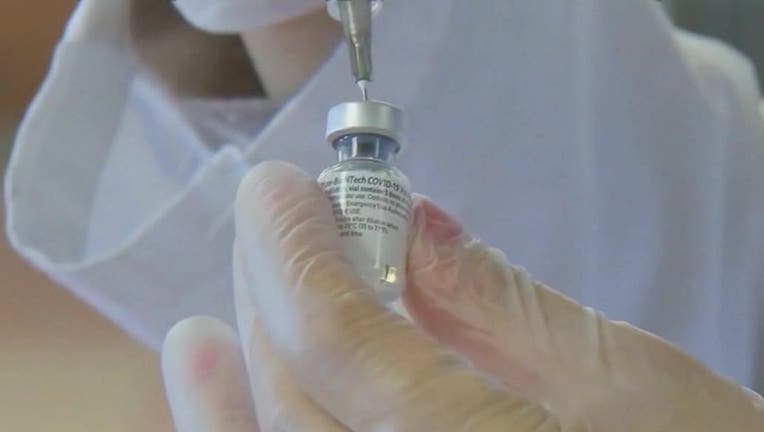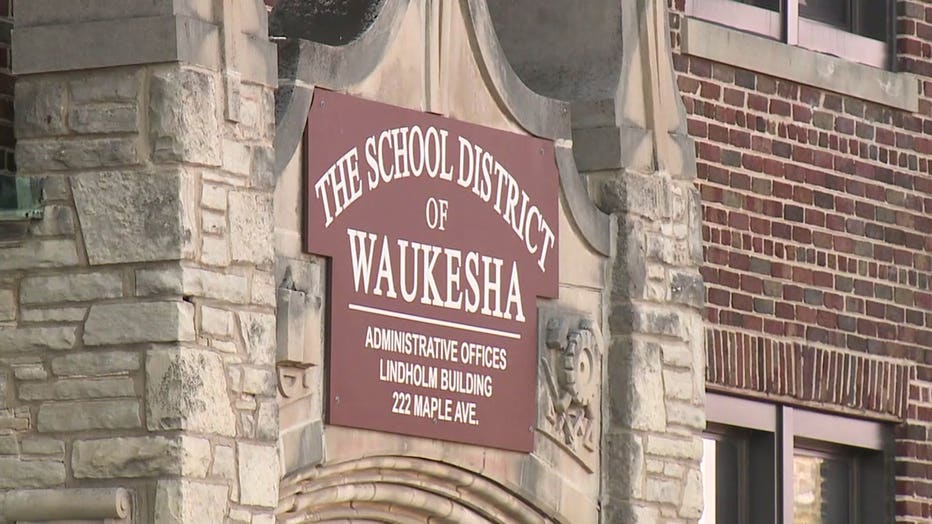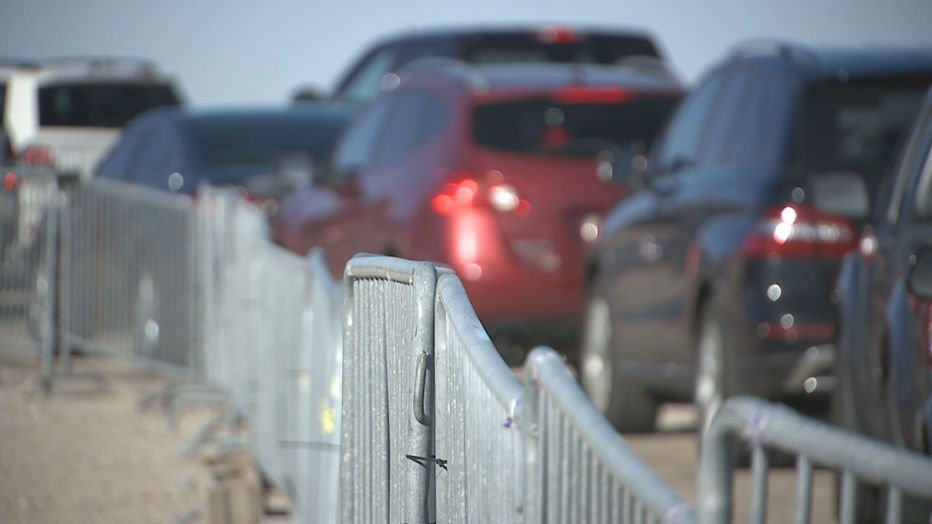Wisconsin DHS: Teachers, people 65+ among priority vaccine group

MILWAUKEE - The Wisconsin Department of Health Services (DHS) on Thursday, Feb. 25 announced that new groups will be eligible for the COVID-19 vaccine starting March 1.
The newly eligible groups, initially announced in January, include in priority order: education and child care staff, people enrolled in Medicaid long-term care programs, some public-facing essential workers, non-frontline essential health care personnel, and facility staff and residents in congregate living settings.
While these groups are eligible on March 1, educators and child care providers should anticipate receiving vaccine in March and early April, and the remaining groups can plan to be vaccinated in April and May.
Due to the limited supply of vaccine doses, people 65 and older, educators, and child care workers will be prioritized for the vaccine. Based on the current allocation numbers, it will take about two months to vaccinate these groups.
Local and tribal health departments are coordinating local-specific plans to vaccinate K-12 education and child care staff. To vaccinate these priority groups, DHS will focus allocations each week on 65+ and educators to ensure both groups are getting vaccinated before moving on to other newly eligible populations.

Waukesha County plans vaccine distribution
The Wisconsin Department of Health Services on Thursday, Feb. 25 announced that new groups will be eligible for the COVID-19 vaccine starting March 1.
Waukesha County plans vaccine distribution
Due by the end of Thursday, local health departments across Wisconsin are submitting plans to the state on how they will vaccinate educators and child care providers in the community.
"Based on a review of all of these plans, DHS will create a master schedule so every local health department and school district will know when they are receiving their vaccine to do this work," said Julie Willems Van Dijk, DHS deputy secretary.

School District of Waukesha
In Waukesha County, the majority of schools have remained in-person since last August.
County Executive Paul Farrow said the state should reward staff who have risked their health to remain in the classroom by putting them first in line to get the vaccine.
"Rewarding our teachers that are doing their jobs, standing in front of the classrooms, teaching the kids, I think is a precedent in what we should be looking at instead of teachers who’ve been sitting in their living rooms teaching the kids from there," Farrow said.

COVID-19 testing line at Waukesha County Expo Center
Despite Farrow's request, Willems Van Dijk said virtual versus in-person instruction will not be one of the criteria considered.
"There is a wide continuum of how people are in school, and it is changing day by day," said Willems Van Dijk.
The deputy secretary said the state will instead give priority to districts with higher percentages of students of color and those who qualify for free and reduced lunch.
"We know these are populations of students and their families that have been disproportionately affected by this pandemic," Willems Van Dijk said.
Willems Van Dijk said, while oftentimes people associate that criteria with urban schools, many children in rural areas experience disproportionate rates of poverty.

What teachers in Wisconsin need to know about the COVID-19 vaccine administration at this time
Here's what teachers in Wisconsin need to know about the COVID-19 vaccine administration at this time.
Wisconsin's vaccine rollout progresses
In recent weeks, the state’s allocation of vaccine from the federal government has increased and is expected to further increase on March 1. This increase will initially be targeted to educators and child care providers.
Wisconsin has vaccinated nearly 50% of residents 65 and older. Wisconsin continues to be one of the top states in the country for vaccine administration and opening up further eligibility will allow vaccinators to keep up the pace.
"Part of bouncing back from this pandemic means protecting all the educators and essential workers, many of whom have been putting their health at risk throughout this pandemic," said Gov. Tony Evers. "With more than 1,281,903 doses of the vaccine already administered, we are working quickly to get more shots in arms as we have supply available.
"While our supply is still not enough for us to vaccinate at the rate we all want, we’re going to keep working around the clock to get folks vaccinated as quickly as we can."
FREE DOWNLOAD: Get breaking news alerts in the FOX6 News app for iOS or Android.
"Everyone included in these newly eligible groups will eventually have the opportunity to get vaccinated, but we are asking everyone to practice patience and wait to schedule an appointment in order to allow those at higher risk to get vaccinated first," said DHS Interim Secretary Karen Timberlake. "Workers who are more likely to come in contact with the public or who are unable to avoid close contact with others are at higher risk of contracting and spreading COVID-19."
Groups eligible March 1 were recommended for the vaccine based on relative vulnerability and risk of exposure to COVID-19. This will add more than 700,000 people to the number able to get vaccinated.
In recent weeks, Wisconsin’s allocation has increased to approximately 90,000 doses weekly.
Beginning February 23, Walgreens began receiving 36,000 first doses each week for the Federal Retail Pharmacy Program, which is up from the 18,000 allocation in previous weeks. There are multiple options for vaccinations, including community clinics, local and tribal health departments, health care providers, and pharmacies. Those eligible for vaccine should visit our eligibility page to learn more about their options.
For information, resources, and data related to Wisconsin’s COVID-19 vaccination program, visit the COVID-19 vaccine page.
Featured
UW Health offers tips on overcoming the stress of the pandemic
Psychologists say the stress of the pandemic is wreaking havoc on our mental well-being.
Featured
Health Dept. adjusts COVID-19 testing hours at American Family Field
The Milwaukee Health Department announced on Thursday, Feb. 25 it will adjust the schedule for COVID-19 testing at American Family Field.



